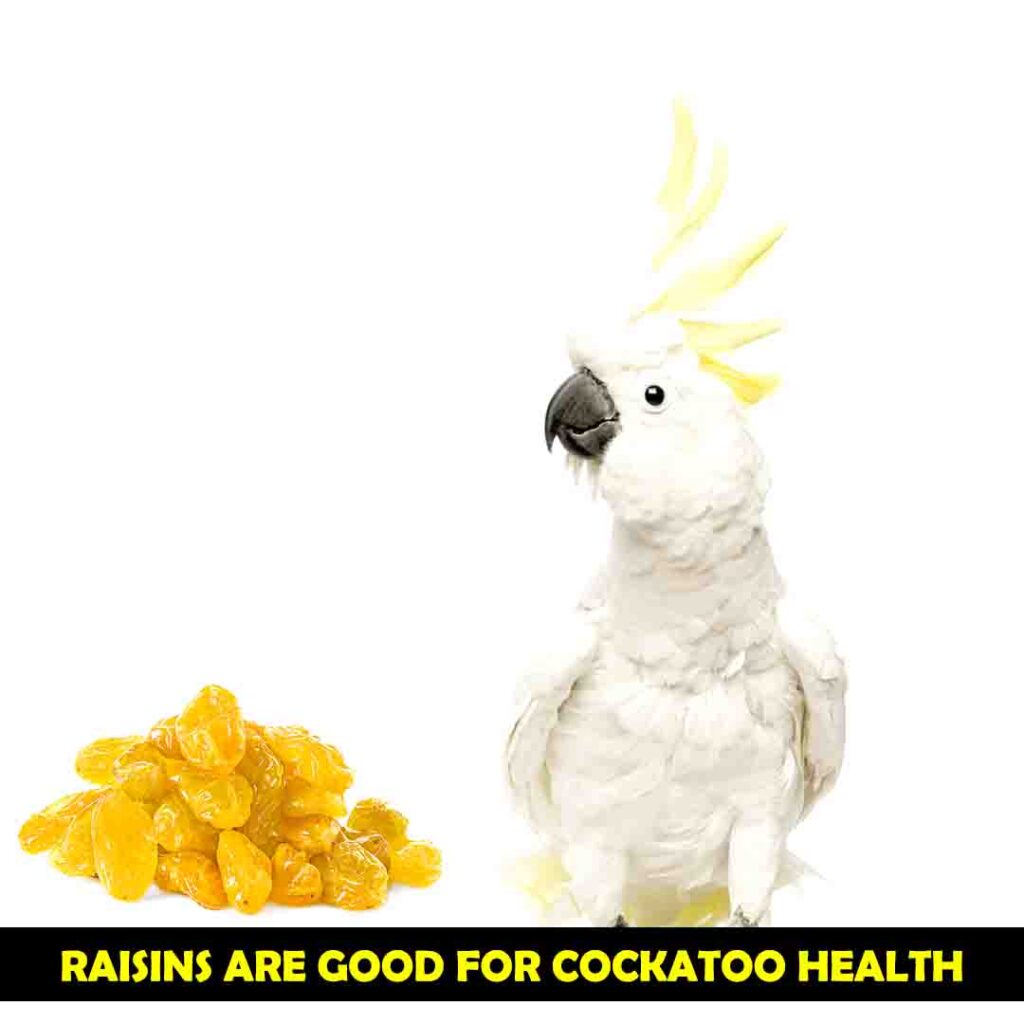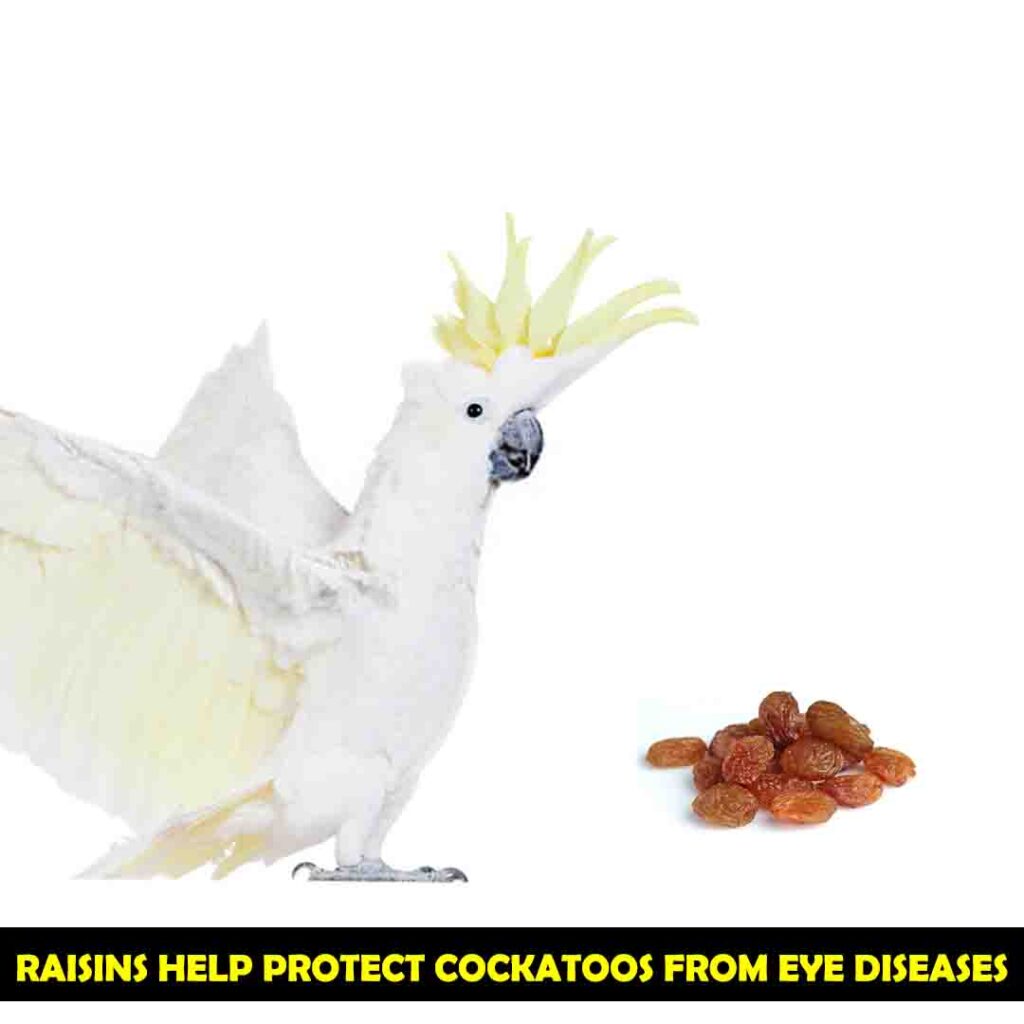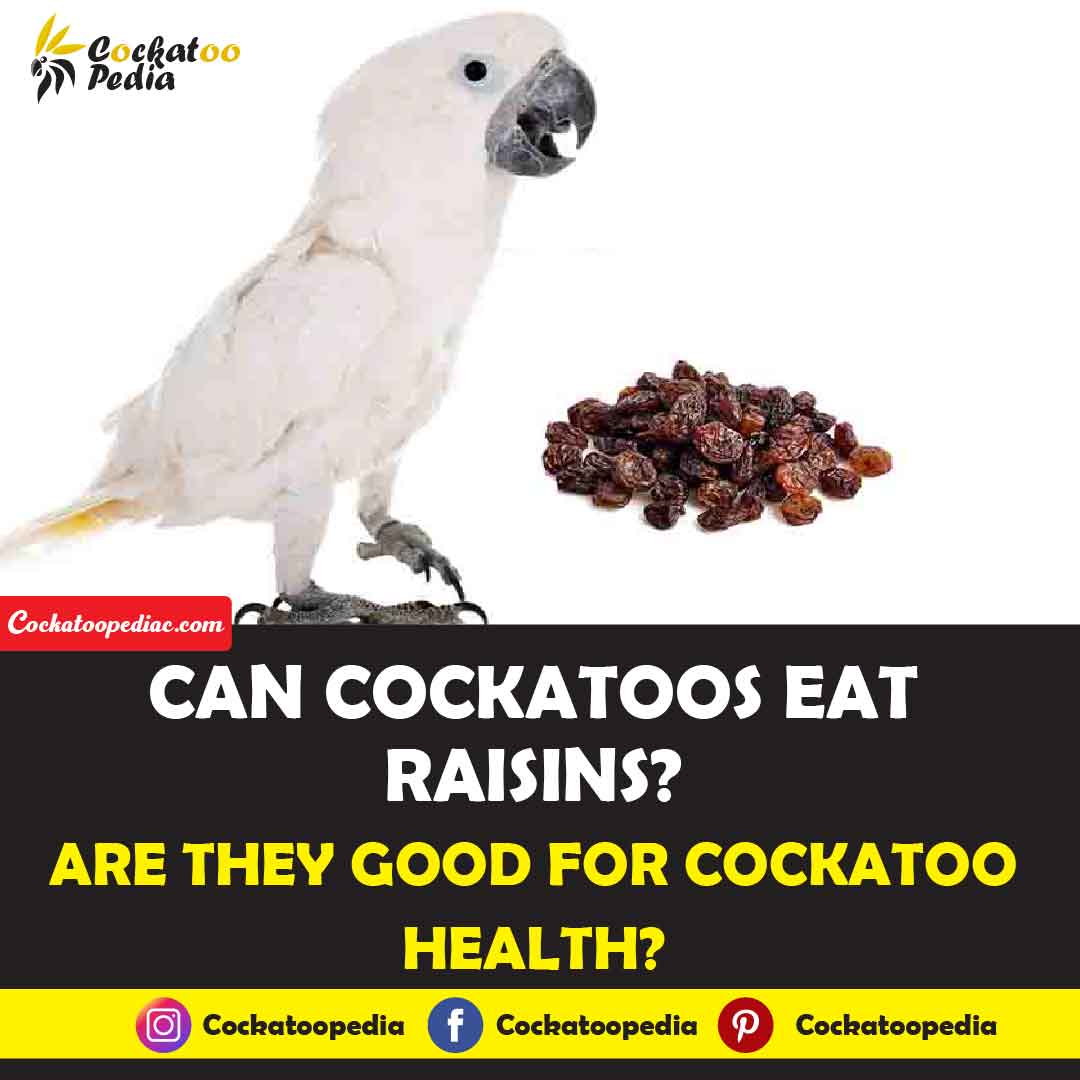Cockatoos are nuts lovers, and they eat many types of nuts. They are enriched with various vitamins, minerals, fats, and protein which are beneficial for your cockatoos. Nuts are healthy for these parrots, but some produce adverse effects on their bodies. In this article, details about raisins will be discussed.
Cockatoos can eat raisins because it is nutrient-dense and it has many health benefits. Raisins are rich in many nutrients but also in calories and sugar, Although nutrients are beneficial for cockatoos, sugar and calories must be avoided. Raisins must be served in moderation due to their sugar content.
Raisins are actually derived from dried grapes, and grapes give high sugar levels along with several essential nutrients. It contains potassium, iron, copper, and magnesium, which are alkaline and reduce acidity. It has vitamin B, C, and D, which are beneficial for their health.
Cockatoos are very sensitive to their diet, so they must be given care and a small proportion. Basically, raisins are healthy if adequately served, and it has many benefits. Let’s discuss these points in detail.
Benefits of Raisins for Cockatoos Health:
Raisins have many health benefits, and it contains many essential nutrients which are very productive in cockatoos’ health. It contains many vitamins, minerals, fiber, and other nutrients that perform different body functions.
Raisins are helpful in Digestion.
Raisins can be an easy way to help keep your cockatoo’s digestive system healthy. It contains helpful soluble fibers, which regulate feces in the cockatoo’s body and help it pass easily through their intestines. This can help improve digestion and promote regularity.
Protect Cockatoos from Anemia.
Raisins can play a role in preventing anemia. They contain good amounts of vitamins, such as iron, copper, and vitamins B, C, and D. They are needed to make red blood cells and carry oxygen throughout the body.
Raisins Can Prevent Cockatoos From Acidity.
Raisins are rich in useful minerals like iron, copper, magnesium, and potassium. These are alkaline in nature and known as basic minerals. On a pH scale, they are alkaline, so they are very helpful in reducing acidity. It also helps to balance acid levels in cockatoos’ stomachs.

Raisins reduce the risk of heart diseases in cockatoos’ bodies.
Research has shown that eating raisins regularly can help reduce the risk of coronary heart disease in cockatoos. For example, lowering blood pressure and controlling blood flow are regulated by eating food like raisins. This is because raisins are a low sodium food that is also a good source of potassium, which helps to relax the blood vessels. However, it is very good but should be eaten in small quantities.
The fight against cancer cells:
Raisins are a good source of many nutrients and antioxidant compounds. Some antioxidant compounds, such as dietary antioxidants, are essential for cockatoos’ health. They can protect the cockatoo’s bodies from oxidative damage and free radicals.
This damage can be the risk factor for many types of cancer, tumor growth, and aging in cockatoos. Cockatoos with these diseases become old and lose their feathers rapidly.
Raisins Help in Eye Protection of Cockatoos:
Raisins contain many useful substances, such as polyphenols, which are antioxidants that can protect eye cells from any damage. It helps to protect cockatoos from eye diseases such as age-related macular degeneration and cataracts, and cockatoos can be protected from these diseases with care.

How to Serve Raisins to your Cockatoos:
Raisins are an essential dry fruit that is very beneficial for cockatoos. They contain many vitamins and minerals that are very good for the growth of cockatoos and their development. But there are some measures that must be taken before serving raisins to your cockatoos.
- They are enriched with nutritious values, but they also contain high levels of sugar, which can disturb a cockatoos stomach if given excessively. So, their moderate quantity is very important.
- Raisins appear very delicious to cockatoos because of their sweet taste and soft texture. Cockatoos love to eat this dry fruit, and even when it is mixed with other fruits, they pick raisins and leave the remaining food, which can cause malnutrition in them.
- Raisins are from grapes, so they contain high levels of Fructose which can cause many health issues to cockatoos. High sugar levels can cause kidney and stomach issues, including diseases like diabetes.
- In order to prevent these issues, you must take care of the number of raisins that you’re giving to your pet. Always serve it in a sensible way and do not include sweets, dry fruits in the regular diet of cockatoos.
- Raisins are highly accumulated with germs because of their small size and thin covering. They absorb the qualities of these harmful germs and chemicals because of their thin covering. They can be toxic to the health of cockatoos. So they must be appropriately washed and given in low quantity to your cockatoos.
Conclusion:
Raisins are nutrient-dense dry fruit, and it is very healthy for cockatoos. They can eat it because there are many essential nutrients that are very effective for both adult and baby cockatoos. Raisins are very healthy, but they must be served in moderation because their excessive amount can be harmful to your pet.
Raisins are a rich source of many nutrients, but they also have fats and high sugar levels. Cockatoos do not need sugar in large amounts; that is why its excess amount can be dangerous for their health. So, they must be given in small quantities in order to achieve good health benefits.
Also Read About: Can Cockatoos Eat Pomegranates?

